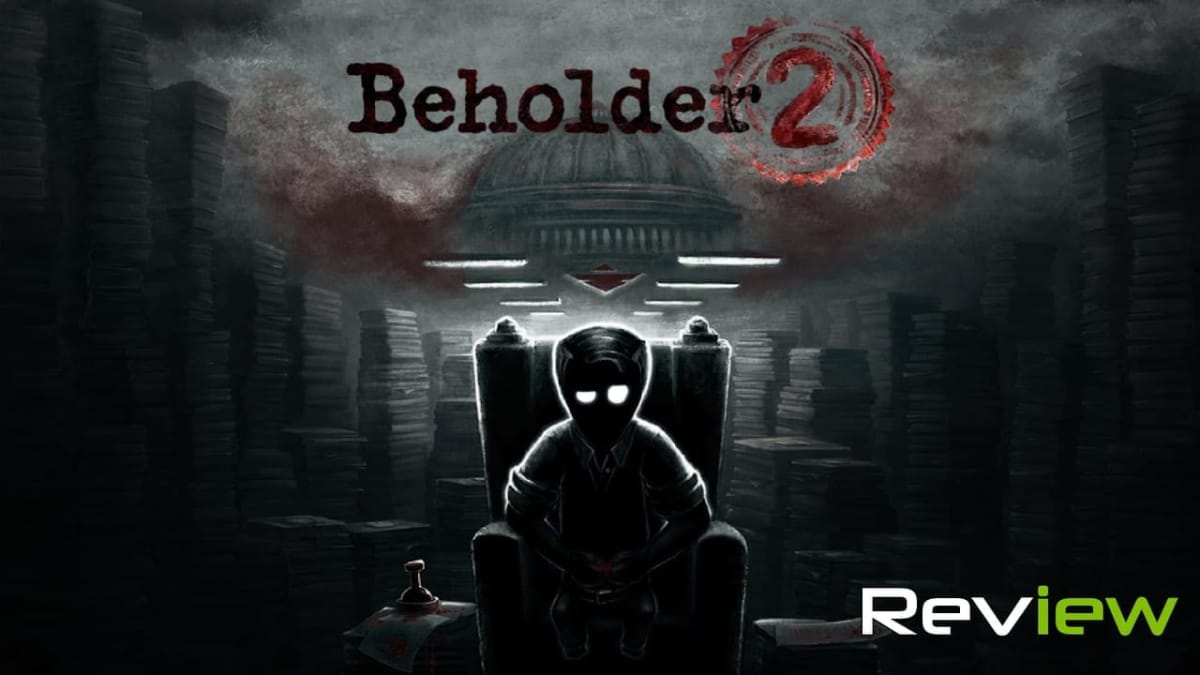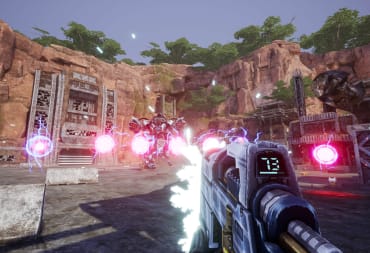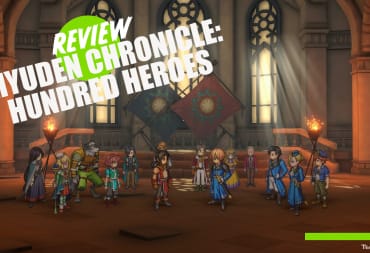Did you ever play Papers, Please? Did you wish there was a little more political sabotage and a little less paperwork? If so, you should play Beholder 2. It's essentially a grimdark Papers, Please adventure game that has it all. Paperwork, traditional point-and-click adventuring, dialogue puzzles, and executing your coworkers for minor misdemeanors!
You play as Evan Redgrave, a newly minted bureaucrat of the Great State. You’ve been assigned to The Ministry, a colossal Volkshalle-style building devoted to paperwork and pointless cruelty. Coincidentally, Evan arrives just in time to see the Gestapo scraping his father’s remains off the sidewalk. After learning his Father was one of the most powerful men in The Ministry and the leader of a game-changing research team, Evan must do whatever it takes to discover his father’s murderer and uncover the secretive Heimdall Project.
That last part is especially important in the full release. The most significant change since I previewed Beholder 2 back in August is that you don't start as Evan. In the full release, you start from the main menu as Evan’s father. Heimdall's purpose is incredibly obvious, even from the main menu. In case you didn’t get it from the visuals, Evan’s father even narrates what it does. Heimdall is the central mystery of Beholder 2, but we already know what it does from the outset. For that reason, the prologue greatly undermines the main plot. It would be like a police procedural that starts by showing the crime from the bad guy’s point of view.
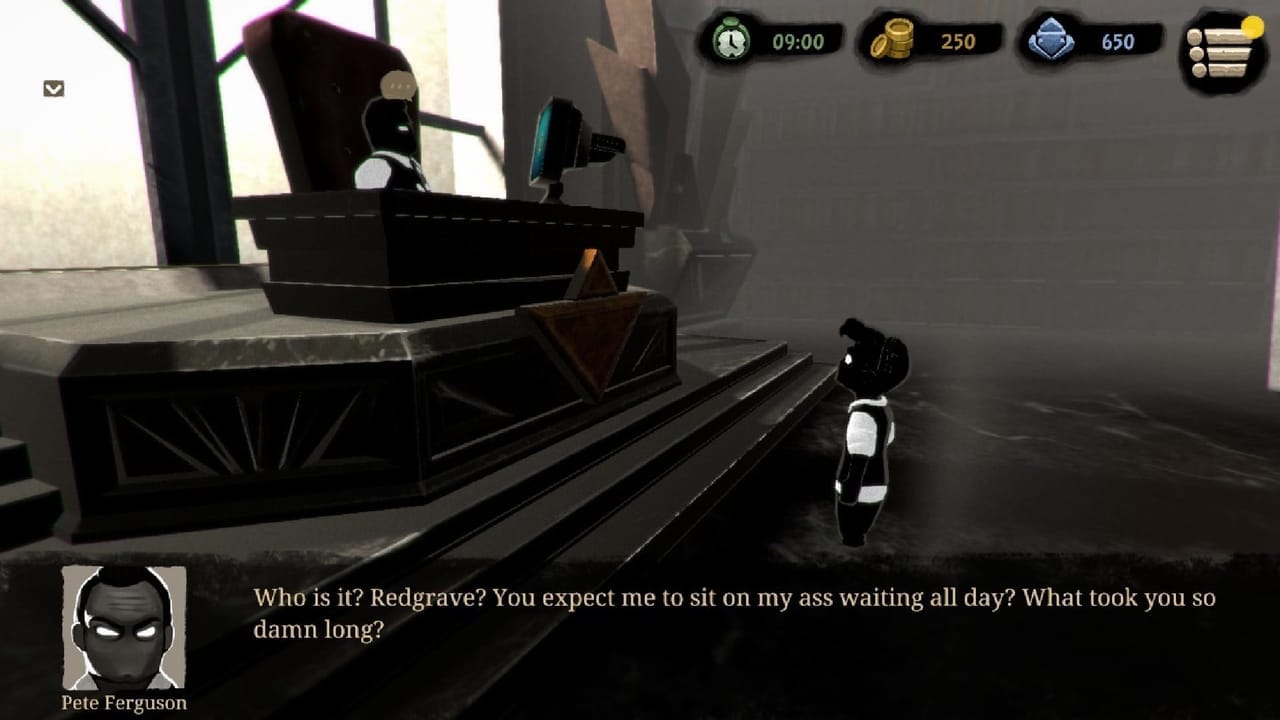
Okay so the story is predictable, but adventure games are more often about the journey than the destination. Beholder 2’s setting and style are what bring this world to life. The style is a cross between American Psycho and Terry Gilliam’s Brazil. The setting is a cruel and satirical take on a world ruled by paperwork and a mustachioed dictator. Fellow ministry employees will do whatever it takes to gain even the slightest edge over their competitors. It’s a sick, sad world matched by a wonderful grayscale art style and silhouetted character design.
Gameplay is a cross between traditional adventuring, resource management, and a paperwork simulator. Your main goal is always to earn a promotion. You do this by collecting “Authority,” a type of currency. You need A LOT of Authority for each promotion. If you’re bored and want to play Beholder 2 as a legitimate bureaucracy simulator, you can grind out Authority from the paperwork minigames. However, the intended method of gaining Authority is by “eliminating” your coworkers and floor manager.
Eliminations make up the vast majority of gameplay. Generally, you need to find dirt on your coworkers. Then you can either convince them to quit or have them arrested. If you want the yuppie in the next cubicle sent to a labor camp, you can learn his secrets by befriending him or you could simply plant a foreign-made watch in his desk and call the police. On the other hand, most co-workers have a side quest to make them leave peacefully.
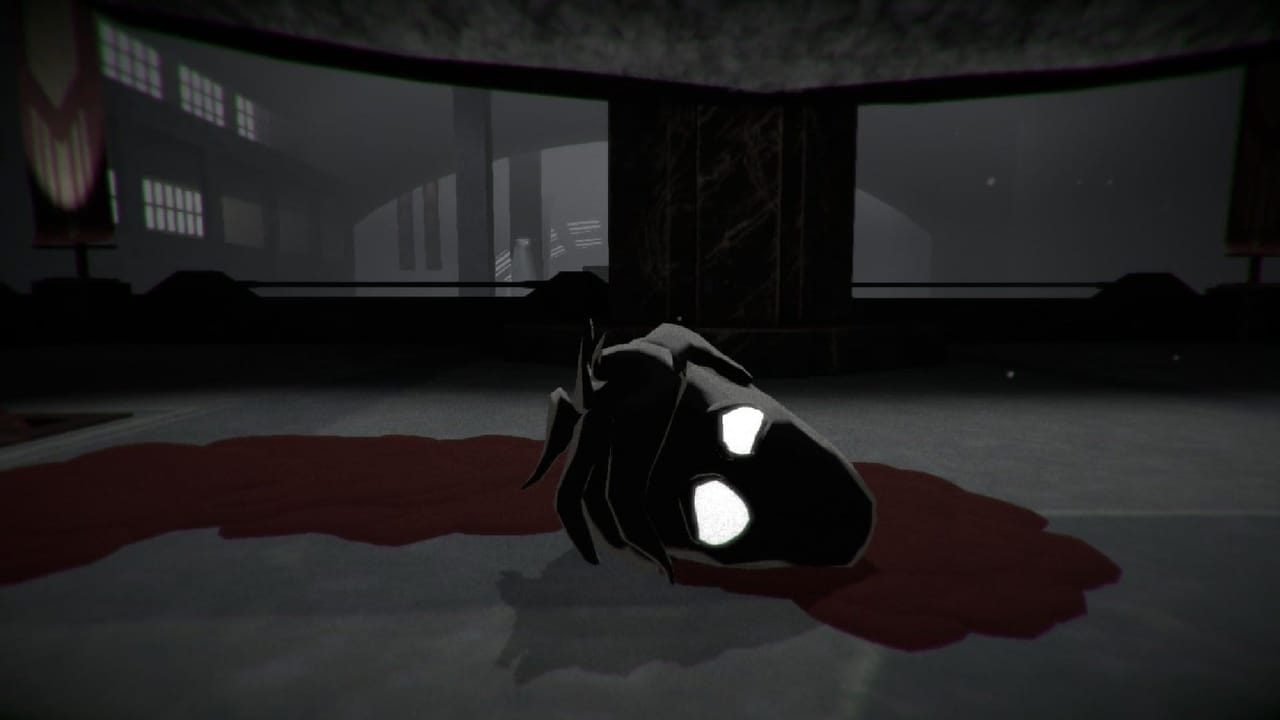
For example, I had a snobby Sheldon Cooper-type who tried his best to ignore me. After an utterly bizarre sci-fi side quest, I went to tell the floor manager what happened. Sheldon Cooper disappears to a top-secret research base. Awesome. Coworker eliminated. Except Evan went home and was shot the moment he opened the door. I reload a save from two in-game days ago and complete the quest another way. However, I did things in the wrong order. Now the boss was gone. I had no way to eliminate Sheldon Cooper peacefully. So, I had to settle for planting a handgun in his desk. Essentially, because so many characters (and their inventories) are getting eliminated, planting contraband acts as a failsafe to move the story forward.
The side quests are worth it, by the way. Beholder 2 has some amazing character writing. Each character is complex and ultimately vulnerable.
Take the first secretary for example. She's not a coworker, you don't have to eliminate her, but she has a side quest. Unlike every other character, she will not entertain your small talk. She's focused on her work and has no tolerance for rule breakers. With a little cleverness you can read her emails. Turns out she's diverting Ministry funds to a very special humanitarian cause. Suddenly she's the rule breaker. Now you have a decision. You can turn her in to the Gestapo or you can help her and learn her motivations. The dystopian surveillance state has hardened this woman, but peel back the layers and you'll find a sympathetic character within.
Every coworker starts off as a stranger you talk with at the watercooler. As you befriend them, you’ll find justifications and complexities in their attitudes. Every character has motivations and opinions. While completing their side quests are often costly and time-consuming (when compared to having them arrested for contraband), a lot of my enjoyment with Beholder 2 came from understanding these characters.
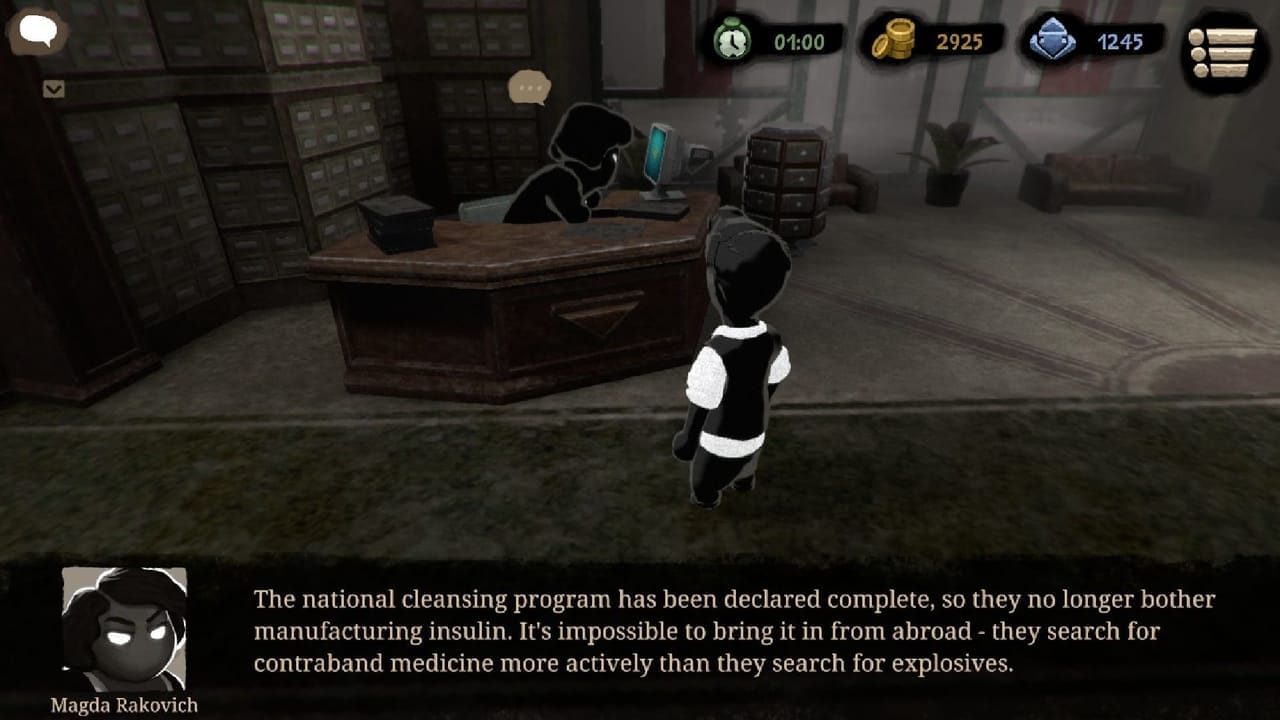
I think Warm Lamp Games have a fundamentally unique concept here. Many video game NPCs are one-dimensional. Even in dialogue-based games, characters often work within the confines of their archetypes. In Beholder 2, characters are only incidentally archetyped as a result of their background and ambitions. You are part of a dozen stories, some big and some small. How you treat these people does not impact the ending, only your conscience.
That last part is what really makes these side quests peculiar from a game design standpoint. Side quests are often much more expensive and time-consuming than arresting coworkers outright. There usually aren’t rewards either. In fact, you may spend more than you earn. However, these characters are so interesting and sympathetic that I didn’t mind going on increasing strained missions for them.
That said, gameplay can feel somewhat formulaic. Each time you arrive in a new office you need to introduce yourself, watch TV, read lockpicking and hacking books, and then get started on eliminating the others. The goal is the same every time, but the variety of characters keep things interesting.
While chatting with coworkers is fun, let’s not forget that there’s work to be done! Failure to meet the Wise Leader’s expectations will result in a public execution. Not only that, but it is your patriotic duty to address the mountain of bills piling up through your mail slot. Fail to make a payment, and you go to jail. That’s why you play the paperwork minigames.
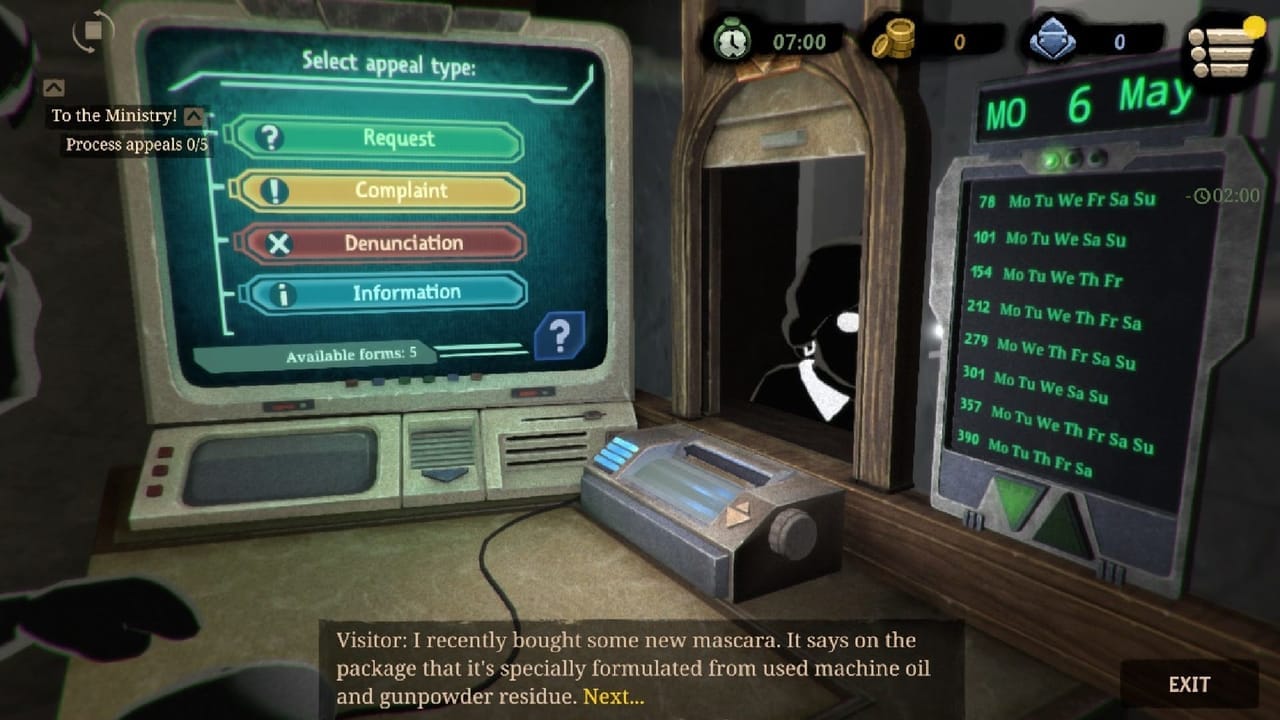
Every correctly processed form comes with a little payout. While a few side quests provide you with some spending money, the minigames are always available for some quick cash. This just means you always have a way out of debt, even if it breaks the narrative momentum.
This is an interesting mechanic due to your third currency, time. Each day you have nine hours to manage as you see fit and an additional two hours awarded when you return home. Everything you do (except for talking) uses time. Playing a work minigame uses two hours. Want to go through the trash? That’s going to cost you fifteen minutes.
Like every other mechanic, time has a curveball. The most effective way of befriending coworkers is by watching their favorite TV shows. Additionally, you’ll need to learn to hack computers, pick locks, and reduce your bills. Each of these requires reading books that are anywhere from one to six hours long. All this means that you have to carefully manage your time and strategically plan out what you want to do every day.
What happens if you have 55 minutes left and you want to watch an hour-long TV show? You shut up and go to bed. While time is a unique currency, I think, more than anything, wasted time invites a min-maxing speedrun-style approach. One side quest asked me to spend eight hours scrounging through filing cabinets. That meant I wouldn’t have enough time to read and watch all my shows. At another point, I realized I couldn’t proceed without hacking a computer. So, I spent the whole day at home, reading and watching TV.
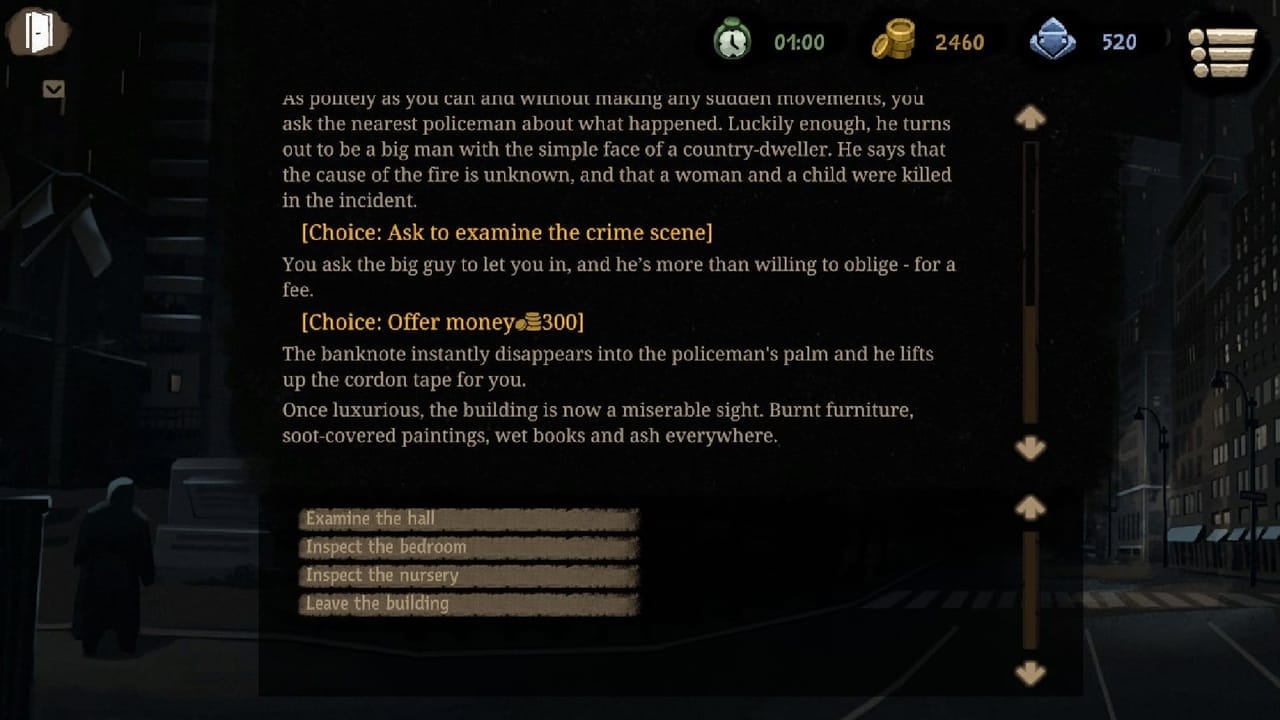
You can also spend time on Choose-Your-Own-Adventure-style dialogue quests. I didn’t realize this at first, but you can explore the city after coming home, provided you have 3-4 hours to spare and a specific destination. These sections have a few more inventory puzzles than other areas and are effective at expanding the world and characters without creating additional 3D environments. It keeps the adventure tightly wound and avoids red herrings.
Beholder 2 Review | Final Thoughts
A few months ago, I said if the whole of Beholder 2 was as engaging as its beta it would be an adventure game for the books. Now, having finished the experience, I think it is exactly that. Beholder 2 stretches the limits of adventure games thanks to its amazing character writing, unique currency system, and branching outcomes. The destination is clear, but the journey is worth every minute.
Techraptor reviewed Beholder 2 on PC via Steam with a copy purchased by the reviewer.
Review Summary
Pros
- Charming Art-Style
- Amazing Character Writing
- Unique Currency System
- Branching Outcomes
Cons
- Predictable Plot
- Formulaic Gameplay
Have a tip, or want to point out something we missed? Leave a Comment or e-mail us at tips@techraptor.net
